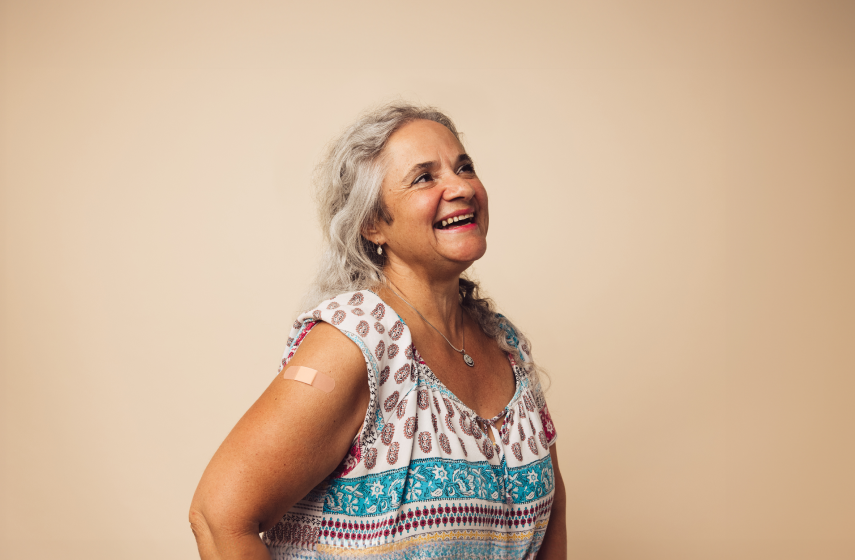Shingles pain may soon be a thing of the past now the Federal Government has given vulnerable Australians free access to the best-performing vaccine against the nasty skin condition.
From 1 November, the government will provide almost 5 million people who are at risk of severe disease from shingles with a free Shingrix® vaccine under the National Immunisation Program (NIP).
Those eligible include everyone 65 years and over, First Nations people 50 years and over, and all immunocompromised people 18 years and over who have a high risk of herpes zoster infection.
The $826.8 million move means the Shingrix® vaccine – which provides around 10 years of protection and usually costs up to $560 – is now free for virtually everyone who needs it.
What is Shingles?
Shingles is caused by reactivation of the same virus that causes chickenpox and presents as a painful blistering rash on one side of the face or body that lasts 10 to 15 days.
One in five people with shingles will develop severe nerve pain known as post-herpetic neuralgia that can last months or years.
In extreme cases, the severe pain can be permanent.
The risk of developing shingles increases with age and people over 65 are at the highest risk of complications like post-herpetic neuralgia.
On 1 November, Shingrix® replaced Zostavax® on the NIP following advice from the independent medicines experts at the Pharmaceutical Benefits Advisory Committee (PBAC) and the Australian Technical Advisory Group on Immunisation (ATAGI).
The odds
Federal Minister for Health and Aged Care Mark Butler said that without vaccination, almost one in three Australians will get shingles in their lifetime.
“Thanks to the Albanese Government, older Australians will now have free access to the best protection against shingles through one of the most comprehensive and widely available vaccination programs in the world.
“This investment will ensure nearly five million Australians can get free protection from shingles and the very painful nerve damage that it causes.
“Shingles can be severe, so it’s really important that eligible people talk to their GP or pharmacist about getting the shingles vaccine.”




